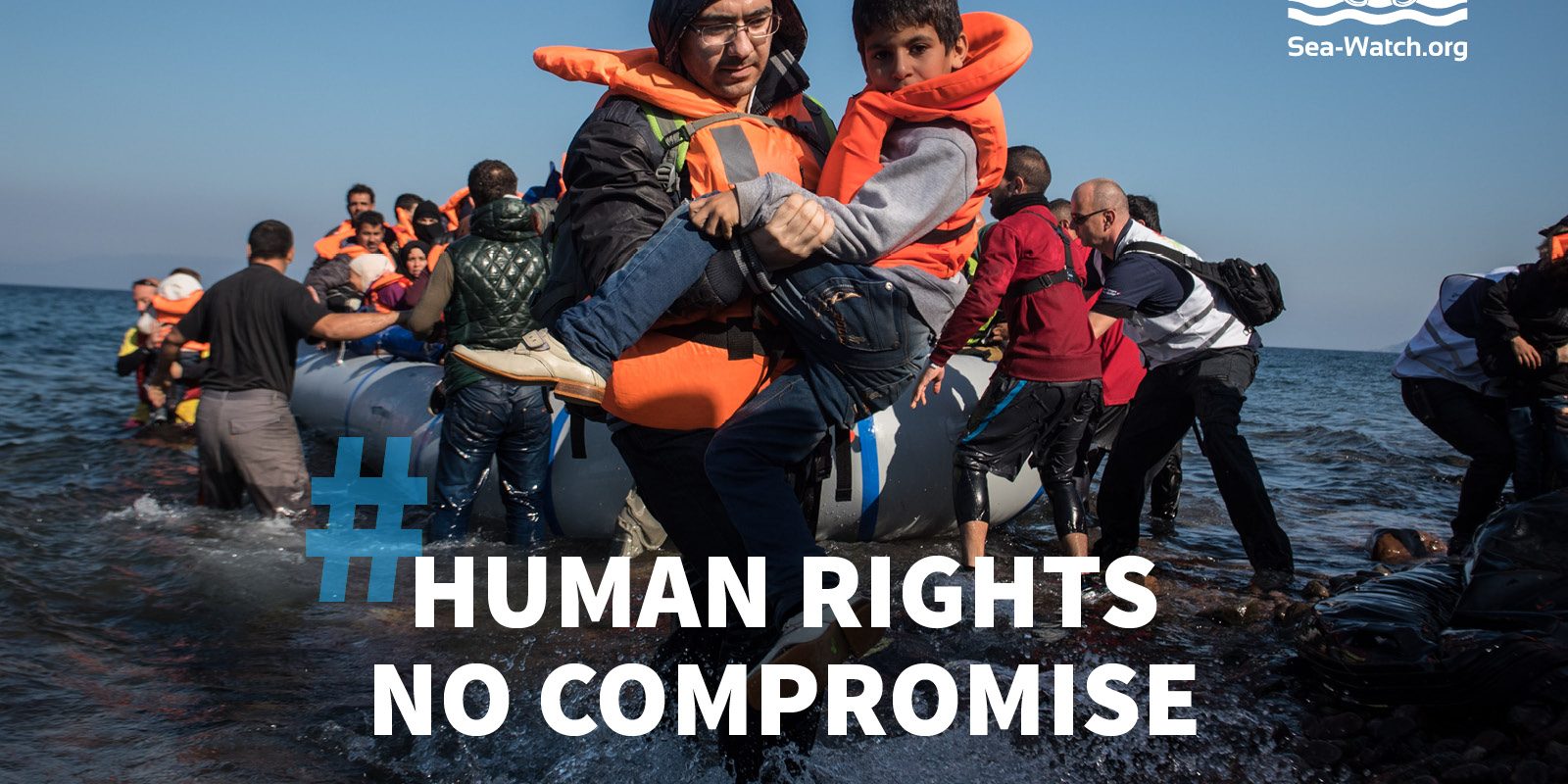Factsheet on the first anniversary of a dirty deal
March 18, 2017
The EU-Turkey Deal forces migrants to use increasingly dangerous routes. On Saturday, 200 people have arrived on the Greek islands via the Aegean Sea. They had to be rescued soaking wet and in the middle of the night. Sea-Watch activist Philipp Hahn has just returned from the Greek island Lesbos. He is outraged about the situation: “We Europeans are holding onto a deal that is further endangering refugees and betraying our European values.”
It is obvious why we are calling for an end of the deal:
1. Many dead in Greek detention camps
The latest report by the human rights organisation Amnesty International clearly shows: The EU-Turkey Deal is intrinsically linked to the inhumane detention of refugees on the Greek islands in the Aegean. In March 2016 it was already clear that Greece was turning camps into detention centres. 15,000 people are currently confined in detention.
The situation in the Greek camps is catastrophic. People seeking refuge are freezing to death and suffocating. Some also lost their lives through a gas explosion. The physical integrity of refugees is not guaranteed. On the contrary, they are exposed to attacks from right-wing groups.
2. Shots on refugees and the displacing of the external borders of Europe
The EU-Turkey Deal has moved the border regime of the European Union to the Syrian-Turkish border that is being fortified by the Turkish government with hundreds of kilometres of concrete walls and fences. Thousands of refugees from Syria have already been turned away at this wall. Noori, a refugee from Syria, told Amnesty International that the Turkish gendarmerie beat him up. On his third attempt of fleeing to Turkey, 11 of his companions were shot at the border. Thousands remain in life-threatening situations in Syrian camps like Bab al-Salama at the border to Turkey. The tent cities are repeatedly hit with bombs and attacked in the civil-war torn country. The Turkish government is only allowing severely injured people entry from Syria. For everyone else, escaping to Turkey becomes a life-threatening venture.
3. Turkey is not a “safe third country”
Turkey is not offering refugees the protection they urgently need. The country is a combatant in the Syrian civil war and is involved in armed combat with Kurdish groups in its south-eastern territories. The political repression of oppositional and critical voices through the government is increasing. Thousands of judges, journalists, soldiers and teachers are being imprisoned and oppositional politicians are being harassed. In the context of the constitutional reform of president Erdoğan, opponents of the enabling act are being defamed as “terrorists” and “foreign agents”.
These developments are intensifying massive human rights violations against refugees in Turkey and at the Turkish border. Accordingly, the asylum lawyer Dr. Reinhart Marx has concluded in his legal opinion that Turkey cannot be considered a “safe third country” since it does not adhere to the international ban on pushbacks nor to the dictate of the protection of refugees.
4. What happened to the EU funds?
The EU promised Turkey 3 billion Euros for the accommodation of refugees in 2016 and 2017 and another 3 billion Euros from 2018 onwards. The EU is using this money to buy the sealing off of the Aegean, but is this money really benefiting the refugees in Turkey? So far, the aid programme has produced mixed results: the recipients are autonomous in how to use the money but nearly all refugees living in Turkey continue to live in poverty and only a few have received the promised working permits.
We don’t compromise on human rights!
That is why Sea-Watch is calling for an end of this dirty deal.
#humanrightsNOcompromise
Foto: jib/ Ruben Neugebauer, Sea-Watch mission at Lesbos 2015











